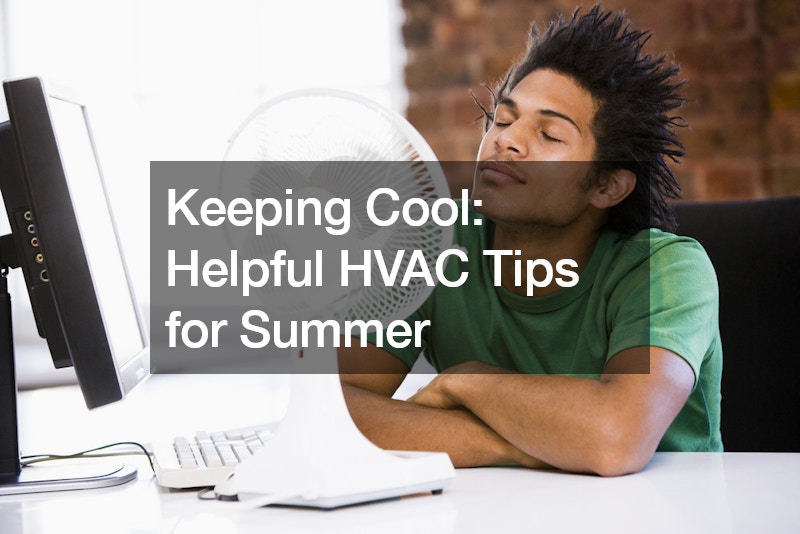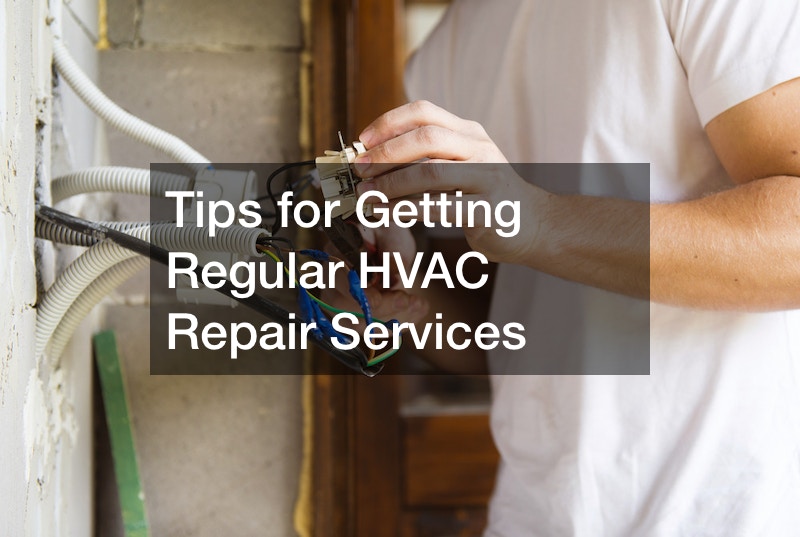1. What is HVAC?
When it comes to HVAC tips for summer, understanding what HVAC actually is essential. HVAC stands for Heating, Ventilation, and Air Conditioning. These systems are crucial for maintaining a comfortable indoor temperature and air quality throughout the year.
In the summer, HVAC plays a vital role in keeping your home cool and comfortable, especially when the temperatures rise. Proper HVAC maintenance and usage can help you stay cool and save on energy costs during the hot summer months.
Many HVAC companies offer a range of services, from air conditioning installations to air conditioning service and repairs. It’s important to find reputable HVAC contractors in your area to ensure your system is operating efficiently.

2. How often should I change my air filters?
One of the most important HVAC tips for summer is to regularly change your air filters. This simple maintenance task can greatly improve the efficiency of your HVAC system and help keep your home cool. Experts recommend changing your air filters every 1 to 3 months, depending on usage and the type of filter you have.
A regular filter change is one of the top HVAC tips for summer. By maintaining clean filters, you can ensure that your HVAC system is running smoothly and efficiently, providing optimal cooling during the summer months.
If you’re unsure about how to change your air filters or what type to use, consult with a local AC contractor or heating and air conditioning company for guidance. They can provide recommendations based on your specific HVAC system and needs.
3. How can I improve air circulation in my home?
Good air circulation is essential for keeping your home cool in the summer. To improve air circulation, start by opening windows and using fans to create cross ventilation. This will help distribute cool air more effectively throughout your home and reduce the workload on your HVAC system.
You can also consider using ceiling fans to circulate air and create a breeze, which can make your home feel cooler without adjusting the thermostat. Additionally, keeping blinds or curtains closed during the hottest part of the day can help block out sunlight and reduce heat gain in your home.
If you’re still experiencing poor air circulation, consult with HVAC contractors for advice on how to optimize your system for better airflow. They can assess your home’s layout and HVAC setup to recommend solutions for improving air circulation.
4. How can I effectively use a programmable thermostat?
Using a programmable thermostat is a great way to optimize your HVAC system for summer cooling. These devices allow you to set temperature schedules based on your daily routine, so your home is cool when you need it and saves energy when you’re away. This can help reduce energy costs and prevent unnecessary strain on your HVAC system.
When programming your thermostat for summer, experts recommend setting the temperature higher when you’re away or asleep and lowering it during peak cooling times. This strategy can help maintain a comfortable temperature in your home without overworking your HVAC system. Be sure to consult with HVAC contractors for guidance on programming your specific thermostat model.
Many HVAC companies offer thermostat installation and setup services, so if you’re unsure about how to use a programmable thermostat, don’t hesitate to reach out for professional assistance. They can help you maximize the efficiency of your HVAC system for summer cooling.
5. What are some common AC problems to watch out for in summer?
During the summer months, it’s important to be aware of common AC issues that can arise. Some of the most common problems include low refrigerant levels, dirty air filters, frozen coils, and thermostat malfunctions. These issues can prevent your AC from cooling effectively and may require HVAC repairs to resolve.
To prevent AC problems, it’s crucial to maintain your system regularly by changing air filters, inspecting for leaks, and scheduling routine HVAC maintenance. By staying proactive, you can catch potential issues early and avoid costly repairs down the line. If you encounter persistent AC problems, contact HVAC contractors for professional assistance.
Local AC contractors specialize in diagnosing and repairing AC issues, so if you’re experiencing problems with your system, don’t hesitate to reach out for help. They can troubleshoot your AC, perform necessary repairs, and ensure your system is running smoothly throughout the summer.
6. How can I maintain my HVAC system for optimal performance in summer?
Regular maintenance is one of the top HVAC tips for summer, ensuring your HVAC system performs optimally during the summer months. It’s recommended to create a summer maintenance checklist for HVAC that includes tasks like cleaning air vents, checking refrigerant levels, and inspecting ductwork for leaks. By following a maintenance schedule, you can keep your system running efficiently and extend its lifespan.
HVAC maintenance tasks can vary depending on the type of system you have, so it’s essential to consult with HVAC contractors for guidance on what to include in your summer maintenance routine. They can provide expert advice on the best practices for maintaining your specific HVAC system and offer services to help keep it in top condition.
Many HVAC companies offer maintenance plans that include regular tune-ups and inspections to keep your system working efficiently. These plans can help you stay on top of maintenance tasks and ensure your HVAC system is ready to handle the summer heat with ease.

7. How can I reduce energy costs with my HVAC system in summer?
Energy-saving HVAC tips for summer can help you lower your energy bills and reduce your carbon footprint during the summer. To cut down on energy costs, consider using a programmable thermostat, sealing air leaks, and installing energy-efficient HVAC systems. These strategies can help you save money while staying cool in the summer.
Energy-efficient HVAC systems are designed to operate more efficiently and use less energy than traditional models. By upgrading to an energy-efficient system, you can enjoy enhanced performance, lower energy bills, and reduced environmental impact. Local HVAC contractors can help you select and install the right system for your home.
If you’re looking to further improve your HVAC’s efficiency, consider scheduling regular maintenance, replacing outdated equipment, and insulating your home properly. These steps can make a significant difference in your energy consumption and help your HVAC system run more smoothly throughout the summer.
8. How can I ensure my HVAC system is running efficiently in summer?
Ensuring your HVAC system is running efficiently is crucial for maintaining a comfortable indoor environment during the summer. Looking for telltale signs is one of the key HVAC tips for summer. Signs of an inefficient HVAC system may include poor cooling performance, uneven temperature distribution, and unusually high energy bills. If you notice these issues, it’s essential to address them promptly to prevent further problems.
To improve HVAC efficiency, start by checking for air leaks and sealing gaps in windows, doors, and ductwork. Proper insulation can also help prevent heat transfer and reduce the workload on your HVAC system. Additionally, scheduling regular maintenance with HVAC contractors can help identify and resolve inefficiencies in your system.
If you’re concerned about the efficiency of your HVAC system, consider investing in energy-saving upgrades like programmable thermostats, smart vents, and high-efficiency filters. These enhancements can boost your system’s performance and help you stay cool while saving on energy costs during the summer.

9. How can I properly size my HVAC system for summer cooling?
Proper HVAC system sizing is essential for effective cooling during the summer months and is one of the top HVAC tips for summer. Factors to consider when sizing an HVAC system include the size of your home, insulation levels, and local climate conditions. Oversized or undersized systems can lead to inefficient operation and poor performance, so it’s crucial to choose the right size for your needs.
When selecting an HVAC system, consult with HVAC contractors to ensure you’re choosing the appropriate size for your home. They can perform a load calculation to determine your cooling requirements and recommend the best system to meet your needs. Proper sizing can help your HVAC system operate optimally and provide consistent cooling throughout the summer.
10. How can I troubleshoot common HVAC issues on my own in summer?
When it comes to HVAC repairs, there are several DIY troubleshooting HVAC tips for summer you can try before calling a professional. If you’re experiencing issues like uneven cooling, strange noises, or poor airflow, check your air filters, thermostat settings, and circuit breaker first. These simple fixes may resolve the problem without the need for a service call.
If you’re still experiencing problems after troubleshooting, it may be time to call in HVAC contractors for assistance. They have the expertise and tools to diagnose complex issues and perform necessary repairs to get your system back up and running smoothly. While some HVAC repairs are DIY-friendly, others require professional intervention to prevent further damage.
11. How can I make my home more comfortable during summer heat waves?
During extreme heat waves, it’s crucial to take steps to keep your home cool and comfortable. Oneof the key HVAC tips for summer for keeping cool during heat waves include using ceiling fans, closing blinds to block out sunlight, and staying hydrated. These simple strategies can help you beat the heat and stay comfortable indoors during hot weather.
If your home tends to get overly hot during heat waves, consider investing in portable air conditioners or window units to provide additional cooling in specific areas. These units can help supplement your central HVAC system and keep individual rooms at a comfortable temperature. For larger cooling needs, consult with HVAC contractors for recommendations on the best cooling solutions for your home.
12. How can I prepare my HVAC system for summer vacation?
Before heading out on summer vacation, it’s essential to prepare your HVAC system for an extended period of inactivity. A checklist for preparing your HVAC system for vacation may include adjusting your thermostat settings, cleaning filters, and scheduling routine maintenance. By taking these steps, you can ensure your system remains in tiptop condition while you’re away.
Setting your thermostat to a higher temperature while you’re on vacation can help save energy and prevent unnecessary cooling. You can also consider turning off specific zones or adjusting airflow to reduce energy consumption further. Additionally, scheduling HVAC maintenance before you leave can help catch any potential issues before they worsen while you’re away.
If you’re unsure about how to prepare your HVAC system for vacation or what steps to take, contact HVAC contractors for guidance. They can provide recommendations on setting your thermostat, performing maintenance tasks, and ensuring your system is ready for a period of reduced use. By preparing your HVAC system before vacation, you can enjoy peace of mind and return to a comfortable home when you’re back.

13. How can I choose the right HVAC system for my home in summer?
When it comes to selecting the right HVAC system for your home, there are several factors to consider. Factors such as the size of your home, energy efficiency ratings, and budget constraints can influence your decision. HVAC contractors can help you navigate these considerations and select a system that meets your cooling needs.
Types of HVAC systems suitable for summer cooling include central air conditioning, ductless mini-split systems, and heat pumps. Each system has its advantages and considerations, so it’s important to weigh your options carefully. Consult with HVAC companies for recommendations on the best system for your home’s layout and cooling requirements.
Local HVAC contractors specialize in new AC installation service and can provide expert guidance on selecting and installing the right system for your home. They can assess your needs, recommend energy-efficient options, and ensure your system is properly sized and installed. By working with HVAC experts, you can enjoy a comfortable and efficient cooling system throughout the summer.
14. Hire the Experts
When investing in the best air conditioning service in your area, it’s important to hire the best professionals. Your HVAC system is massively complex, so you don’t want to create problems for yourself by starting to repair it or add things to it to make it work better. It’s important to ensure that you hire the experts in the area and make sure that they know what they’re doing. You can do this by googling the best local air conditioning service in your area and hiring the best ones you know. You can take a look at their reviews and ensure that there are plenty of positive ones. Give them a call and try to get a free estimate from them. A free estimate is the best way to ensure that the company is confident in their services. You can contact your local plumbing service today to discover what you can do to ensure your HVAC is prepared for the summer.
Additionally, as mentioned previously, you should never do these repairs or alterations yourself. This could mean a lot of money could be spent on them and possibly cost you money in the future.
In conclusion, implementing HVAC tips for summer can help you stay cool, save energy, and maintain optimal indoor comfort during the hot months. From changing air filters to air conditioning repair, improving air circulation, and maintaining your system, there are many ways to enhance HVAC performance in the summer. By following the advice of HVAC contractors and staying proactive with maintenance, you can keep your system running efficiently and enjoy a comfortable home all summer long.



